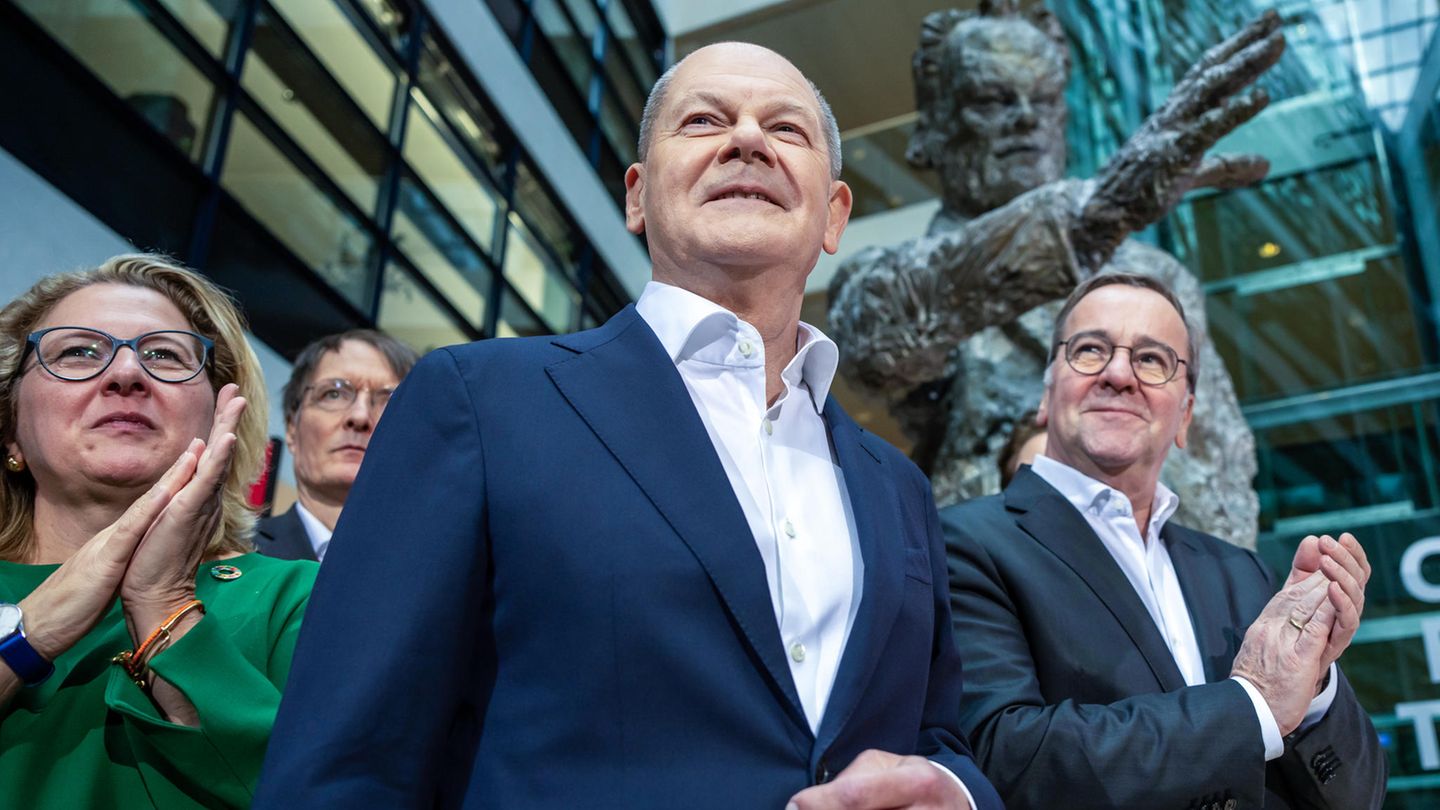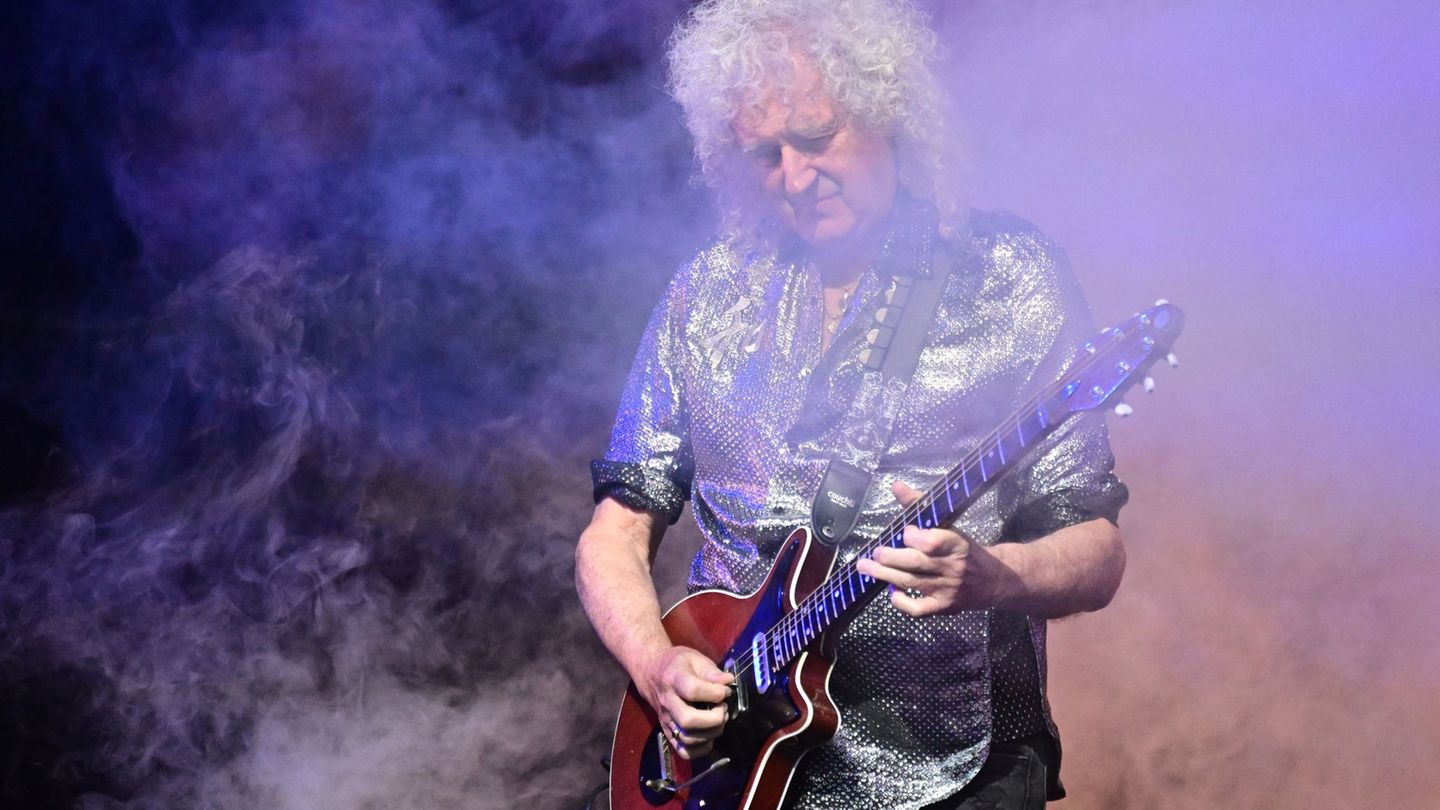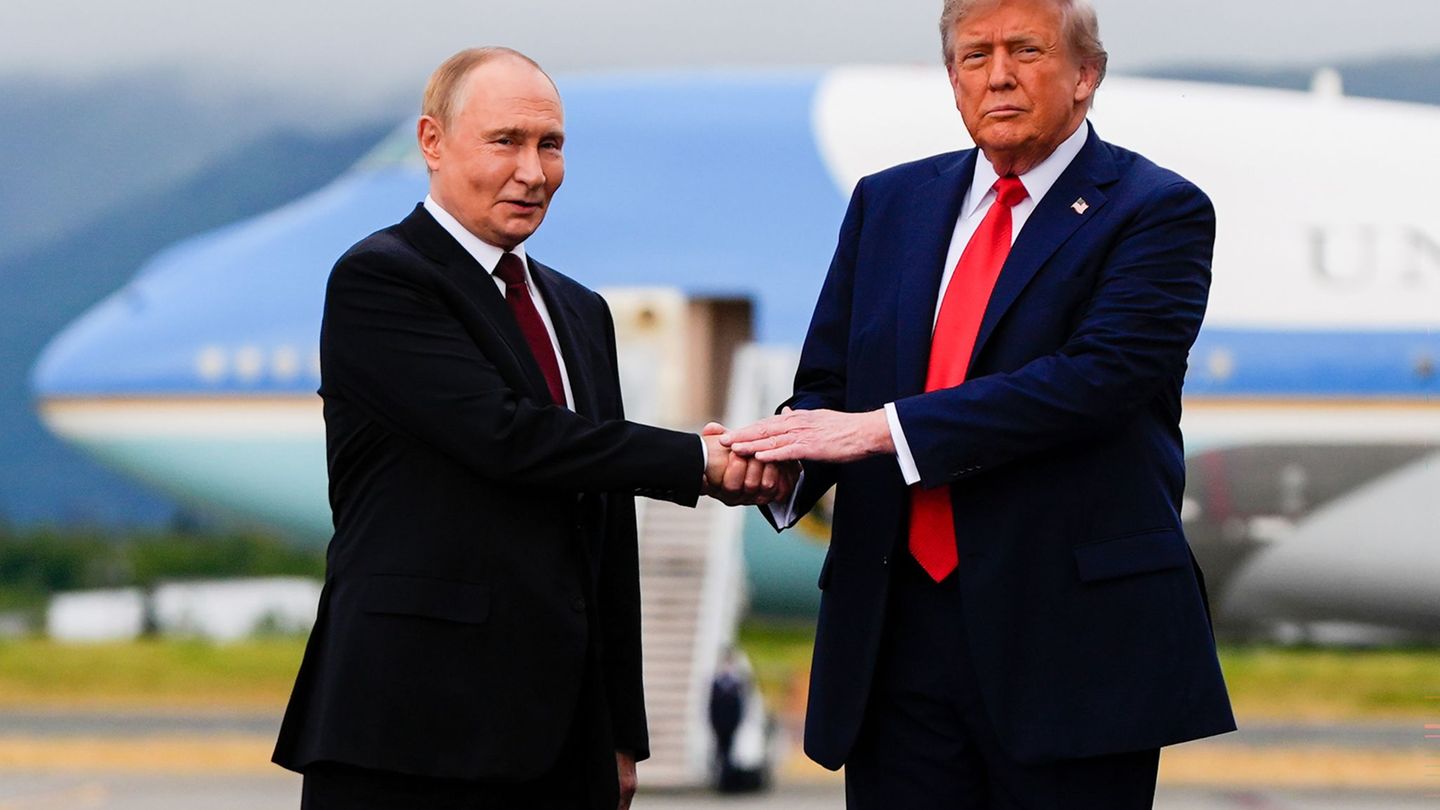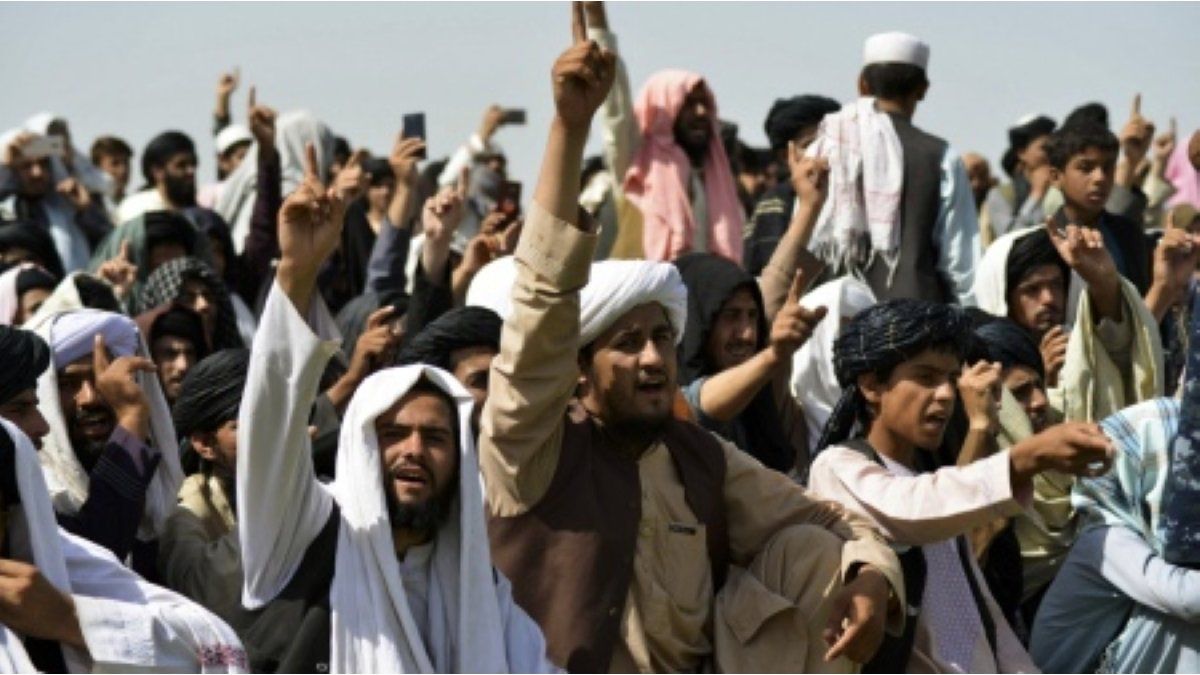Chancellor candidate Olaf Scholz
The SPD is pretending to be normal. But nothing is normal here.
Copy the current link
Olaf Scholz is supposed to lead the SPD into the federal election campaign – after an agonizingly long discussion about his chances of success. Is everything okay again? Wait.
As if nothing had happened: at 1:34 p.m. the caravan sets off and descends the stairs into the atrium of the Willy Brandt House. In front is the Chancellor, behind him is the large SPD party executive, which has just nominated Olaf Scholz as candidate for Chancellor. Normally a mere formality, hardly worth mentioning. On this Monday afternoon, the selection of candidates was like a small happening at the party headquarters in Berlin. After all, it was unclear for a long time who exactly should lead the SPD – and whether the party would be torn apart on this issue.
The SPD is pretending to be normal. But nothing is normal here.
“Thank you very much for the decision that the party executive committee made today,” says Scholz. That’s typical for Scholz: I’m happy. “This is a very clear, very consensual vote,” the Chancellor adds, as if he had to emphasize it again. He has to.
In fact, Scholz was unanimously nominated as a candidate for chancellor. This would hardly have been newsworthy if it hadn’t been for this agonizingly long debate. Whether things will go well with him, the failed traffic light chancellor with modest popularity ratings. Wouldn’t Boris Pistorius, the extremely popular defense minister, be the more promising candidate? Whether the loud calls from the rank and file and the Bundestag faction, which publicly questioned their own Chancellor, can be recaptured at all.
These questions apparently do not arise for Scholz, at least not anymore. The SPD has “stopped together,” says the Chancellor, putting a nice spin on the upheavals of the last few weeks. They have now decided together to tackle the election victory on February 23rd. Isn’t he getting excited too soon?
Olaf Scholz: “The real story is that…”
The SPD leadership gathered in the Willy Brandt House is trying to dispel any remaining doubts about this. There is a lot of smiles and solidarity applause. While the SPD party leaders Lars Klingbeil and Saskia Esken prepare the stage for the “right man” for the Chancellery, Scholz and Pistorius present themselves in demonstrative unity. They joke, chat, and smile at the photographers who slide around in front of them. As if it was a big misunderstanding. Rivals, us? Nope.
The discussions “about such things,” says Scholz, “sometimes consist of many stories.” Scholz doesn’t say what stories he means by that. “The real story is that we’ve been friends for a very, very long time.” By this he means Pistorius, whom Scholz brought into the cabinet because of his competence and “our friendship”. Now we want to run this election campaign together and win. The party executive claps, and so does Pistorius.
Of course, Scholz cannot brush off the many requests to speak from the SPD – against him and for Pistorius. Especially since nothing has changed in the starting position for him and the SPD. Scholz may have “diverse government responsibilities,” as co-leader Klingbeil emphasizes, but he may also be “principled” and “determined.” Bracket: In contrast to CDU leader Friedrich Merz. But little evidence can be added to the story of the hands-on Chancellor in the coming weeks and months.
After the traffic light went out, Scholz does not have his own majority in parliament and is dependent on help from the opposition, which will not wave through any laws that could serve as a campaign hit for him. On December 16th, Scholz’s failure as a mediator between the feuding coalition partners will be officially documented – then the Chancellor will ask the vote of confidence and will probably lose. It is questionable whether this will all provide any impetus. The surveys show the way down: 14 to 16 percent. The Union, the self-declared main opponent of the SPD, is 22 points ahead. Not even within striking distance.
And there aren’t many opportunities to turn around the unfortunate standing at first. After the vote of confidence, Parliament at best passes a few laws that cannot be postponed, but then disappears into the winter break. While the first annual reviews will be broadcast on television, in which you will see how the traffic light coalition has disintegrated to the point of breaking – less how Scholz tried to hold it all together, as he says.
Finally, January 11th, the SPD party conference, at which Scholz’s candidacy is to be confirmed. Also a formality, actually. But Scholz will have to be measured at least by his result from May 2021 (96.2 percent). And who can rule out that the conflict over the K question won’t break out again if the SPD slips further in the polls by then?
The both-and chancellor
Scholz doesn’t believe that. The SPD maintains a “culture of solidarity,” he says at party headquarters, in which “you can always discuss how it is right to do things and then come together.” Even those who expressed criticism about him “stand behind me and behind this decision,” says Scholz. He discussed with everyone. The Chancellor makes it clear that he has also questioned himself – a little. In any case, you would know him wrong, he says, if you believed that he didn’t ask himself this question again and again. Meant: Should I compete again?
Scholz could obviously say yes to this, as did the SPD leadership recently. She now wants to go into the winter election campaign with the slogan “We fight for…”, supplemented by goals such as “your future” or “Germany”. The core themes of the campaign: peace and security, better wages, investments in the future, stable pensions – classic SPD themes, no surprises.
“Above all, no contradictions,” is the central message from candidate Scholz. We have to get out of the “fatal either/or situation,” he says. More for internal and external security, but less for health and care – that won’t happen with him. Both must be possible. Scholz, the both-and chancellor.
He highlights two topics in particular. First: “The next federal election will decide whether there is a stable pension or not.” Anyone who relies on the SPD can be sure that this question will not be forgotten. Secondly: Germany will not let Ukraine down in its defensive fight against Russia and will continue to support the attacked country. But Scholz emphasized that he also “steadfastly” ensured that “no wrong decisions” were made. He once again rejected the delivery of the “Taurus” cruise missile or the lifting of range restrictions for German weapons. Scholz, the one-bit-peace chancellor.
Pistorius, the robust defense minister, looks down thoughtfully at this moment. Then he turns his gaze back to Scholz, the candidate for chancellor.
Source: Stern
I have been working in the news industry for over 6 years, first as a reporter and now as an editor. I have covered politics extensively, and my work has appeared in major newspapers and online news outlets around the world. In addition to my writing, I also contribute regularly to 24 Hours World.





